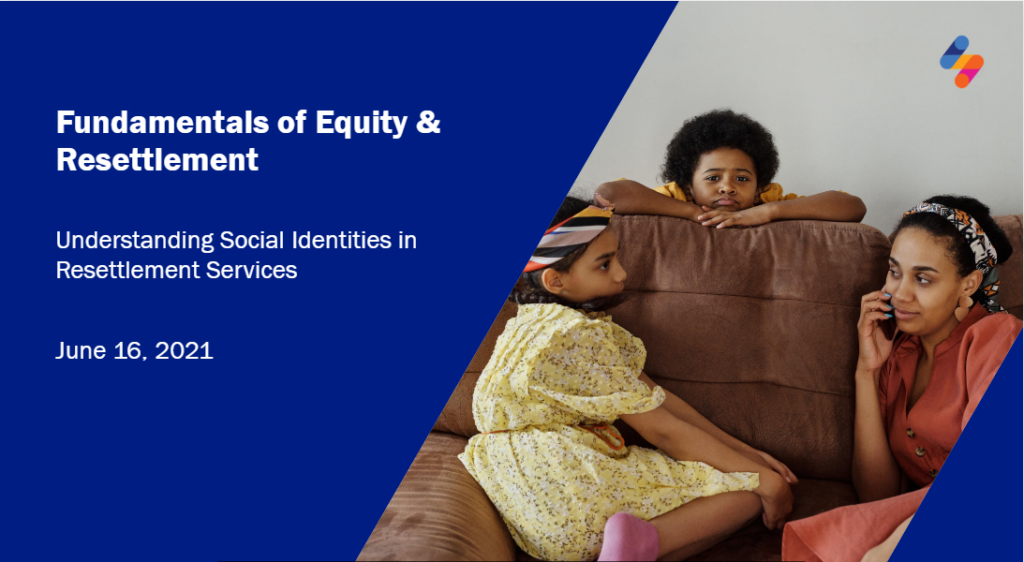Hosted on June 16, 2021, this training was delivered by Isabelle Darling, Clinical Lead, National Partnership for Community Training (NPCT); and Fasil Aragaw, Refugee Integration Specialist, Gulf Coast JFCS.
The U.S. has historically been a symbol for “the land of the free,” but recent events have jolted communities across the country to address historically rooted issues of discrimination, dynamics of power and privilege, and inequities experienced across marginalized social groups. Nationwide, we have seen an increase in acts of violence against communities of color, women, and LGTBQI+ communities. These heightened acts of violence against marginalized communities create a sense of fear among refugee communities and place strain on resettlement providers to support refugees through resettlement milestones. The U.S. has also seen an increased engagement in community dialogues and trainings on building anti-bias, anti-racist, justice, equity, diversity, and inclusion-oriented practices. Through the historical context of the immigration and refugee process in the U.S., this webinar shared key insights, tools, and practices to provide equitable, inclusive, and healing-centered refugee services. This webinar increased capacity to recognize the complexity of clients’ social group memberships and the integral role these identities can play in a successful resettlement experience.
By the end of this webinar, you will be able to:
- Understand how social identities are integral to successful resettlement;
- Describe U.S. immigration history & its impact on the current resettlement process;
- Apply the theory of intersectionality to refugee services; and
- Begin incorporating anti-bias practices into your resettlement services.







